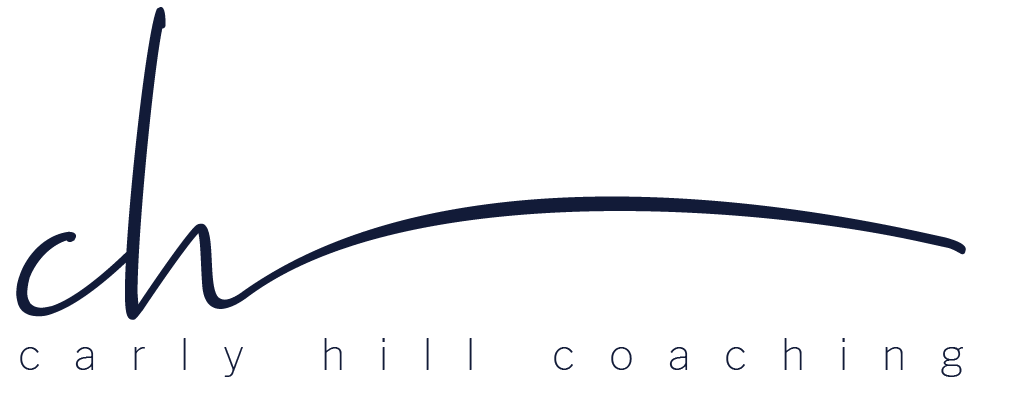Carly Hill Takes you From Therapist to Coach with 3x the income
Continuous Professional Development for Coaches

FSDAVCFEBFEVSDDVFSD

FSDAVCFEBFEVSDDVFSD

FSDAVCFEBFEVSDDVFSD
Career Growth
Why Ongoing Learning Matters

Continuous professional development is essential for therapist-coaches aiming to maintain excellence and adapt to evolving client needs. Engaging in ongoing education ensures that coaching practices remain effective, ethical, and aligned with current methodologies. By investing in their growth, coaches enhance their ability to support clients through various life transitions and challenges.
Moreover, continuous learning fosters confidence and credibility. Clients are more likely to trust coaches who demonstrate a commitment to their own development. This dedication not only improves client outcomes but also contributes to the coach's personal satisfaction and professional success.

Certifications and Training Opportunities
Therapist-coaches can benefit significantly from certifications that build on their clinical expertise. Programs that emphasize coaching competencies, ethics, and leadership development offer valuable frameworks for client work. These certifications help bridge the gap between therapy and coaching by providing structure, tools, and language that resonate within the coaching industry. They also increase credibility with potential clients who value formal credentials.
Beyond certifications, professional development continues through workshops and seminars. These in-person or virtual events offer fresh perspectives, hands-on strategies, and direct access to thought leaders in the field. Participating in regular training events can reinvigorate a coach’s practice and introduce modalities that align with their niche. The interactive nature of workshops also allows for skill refinement and peer-to-peer learning.
Staying current with coaching trends ensures services remain relevant and impactful. Whether it’s learning new client assessment tools, understanding business development techniques, or adopting updated ethical standards, ongoing education positions therapist-coaches for long-term growth. This adaptability is key to serving a diverse and evolving client base with confidence and clarity.
Incorporating Learning into a Busy Schedule

Balancing professional development with a full coaching schedule requires intentional planning. Therapist-coaches can start by designating regular time blocks for learning activities—whether that’s webinars, reading industry updates, or completing short modules. Flexible formats like online courses allow learning to happen at a comfortable pace, ensuring client sessions remain uninterrupted while still making space for continuing education for coaches.
Setting clear goals around skill development helps therapists stay focused and motivated. These goals might include earning a certification, mastering a new coaching method, or deepening expertise in a niche. Regularly reviewing progress and adjusting plans ensures efforts remain aligned with professional objectives. By making learning a consistent part of their week, coaches not only improve their services but also demonstrate the growth mindset they encourage in clients—reinforcing credibility and long-term effectiveness.

Continued learning doesn’t always require formal programs—microlearning can be just as impactful. Short bursts of knowledge, like listening to industry podcasts, reading research summaries, or joining brief peer-led training, help therapist-coaches stay engaged with current topics. These bite-sized strategies can fit easily into a busy day and still contribute to long-term professional growth. Over time, these small learning investments compound, enhancing both skill set and service delivery.
Therapist education in coaching is most effective when it's applied immediately. Coaches can integrate new tools or approaches into client sessions as they learn them, reinforcing retention and boosting confidence. Even subtle shifts—like trying a different questioning method or reframing client challenges—keep sessions fresh and relevant. Embedding education into practice not only benefits clients but also helps therapists continue evolving, which is essential for a sustainable and impactful coaching business.
Carly Hill’s Support for Development
Carly Hill Coaching offers structured programs specifically designed to support therapist-coaches as they transition into the coaching world. These programs address the unique challenges of shifting from clinical therapy to coaching, providing practical guidance and resources every step of the way. With a focus on professional development for coaches, Carly Hill helps therapists build the confidence and skills needed to create sustainable, client-centered coaching practices.
A key element of Carly’s approach is helping coaches align their methods with their personal values and long-term goals. This alignment allows for more authentic service delivery and strengthens client relationships. The programs also emphasize business sustainability—guiding therapist-coaches to implement systems that support consistent growth while maintaining quality care.
In addition to content and strategy, Carly Hill Coaching provides a supportive community. Through peer learning, feedback, and mentorship, therapists stay engaged and accountable in their continuing education for coaches. This ongoing development reinforces their ability to adapt, innovate, and grow throughout every stage of their coaching career.
Conclusion: Embracing Lifelong Learning
In the dynamic field of coaching, embracing lifelong learning is not just beneficial—it's essential. Continuous professional development enables therapist-coaches to stay current, refine their skills, and provide the highest quality support to their clients. By committing to ongoing education, coaches ensure their practices remain relevant and effective.
Carly Hill Coaching stands as a valuable partner in this journey, offering the tools and support necessary for sustained growth. Through dedicated programs and a focus on practical application, Carly Hill Coaching helps therapist-coaches navigate the complexities of professional development with confidence and clarity.
Ultimately, the pursuit of continuous learning enriches both the coach and their clients, fostering a cycle of growth, adaptability, and success in the ever-evolving landscape of coaching.


Ongoing education helps therapist-coaches stay sharp and aligned with current coaching best practices. Whether through certifications, webinars, or short-form content, continual learning strengthens core competencies and reinforces confidence. It also ensures that coaches remain responsive to client needs and current within a competitive field. Even brief moments of study—like reading an article or reviewing new tools—can create lasting shifts in client outcomes. Making learning a consistent part of business development supports long-term adaptability and success.
Turning Learning Into Lasting Growth
For professional development to drive meaningful results, therapist-coaches must approach it with intention. Setting quarterly or annual learning goals is an effective starting point. These goals might include earning a coaching certification, joining a mastermind group, or diving deeper into niche areas like career transitions or somatic coaching. Structured planning turns ideas into action. It ensures that development aligns with business goals and supports the type of coaching transformation clients are seeking.
Accountability is also essential to sustaining momentum. Coaches benefit from regular check-ins with mentors, peers, or professional communities. These relationships create space for honest reflection, fresh insights, and shared resources. Feedback loops help identify blind spots and spark innovation. Whether it’s a monthly progress review or collaborative learning circle, accountability keeps personal growth consistent and relevant.
Most importantly, consistency over time delivers the biggest payoff. Micro-learning efforts—even just 30 minutes per week—can gradually refine your skills and confidence. These shifts often lead to more effective sessions and deeper client breakthroughs. As you integrate new strategies, coaching becomes more intentional and results-driven. Ultimately, professional development for coaches isn’t about hitting milestones quickly—it’s about building a mindset of lifelong learning that adapts with your evolving identity as a coach.
Staying Aligned With Client Goals

Professional development should always support the coach’s broader mission—guiding clients through meaningful change. As therapist-coaches pursue certifications or learn new approaches, it’s important to ensure these skills enhance the client experience. Learning that directly improves sessions—whether by deepening listening, refining questions, or clarifying outcomes—adds immediate value. Keeping client goals at the center ensures that professional growth remains intentional.
Regular reflection helps coaches assess how learning translates into results. Are sessions more productive? Are clients making faster progress or achieving deeper insight? These checkpoints offer valuable feedback for refining techniques and adjusting strategies. When coaches use client success as the guide for future learning, professional development becomes more relevant and rewarding. Therapist-coaches grow not just as professionals but as trusted partners in transformation—making their work both effective and personally fulfilling.

Committing to Lifelong Professional Growth
Continuous learning is at the heart of effective coaching. As therapist-coaches navigate evolving client needs and an ever-changing coaching landscape, their ability to grow professionally becomes a direct contributor to long-term success. Ongoing development strengthens coaching certifications, deepens niche expertise, and reinforces the confidence needed to build impactful, sustainable practices. More importantly, it models the very transformation coaches aim to guide their clients through.
Carly Hill Coaching is built around this belief in growth. Her programs not only support business development but also prioritize continuing education for coaches through structured learning, strategy sessions, and mentorship. Whether therapists are refining their coaching style or expanding into new service offerings, Carly provides tools that align with their unique vision and strengths. Investing in professional development is not just about staying qualified—it’s about staying inspired. Coaches who commit to learning create more resilient, adaptive businesses that thrive well beyond their initial transition from therapy.

Carly Hill
LCSW; Author
Stay Up-to-date with our Content
Subscribe to learn more about our mission!
Stay Up-to-date With Our Content
Subscribe to learn more!
Free Resources
Free Resources
Copyright © 2026 Carly Hill Coaching LLC


